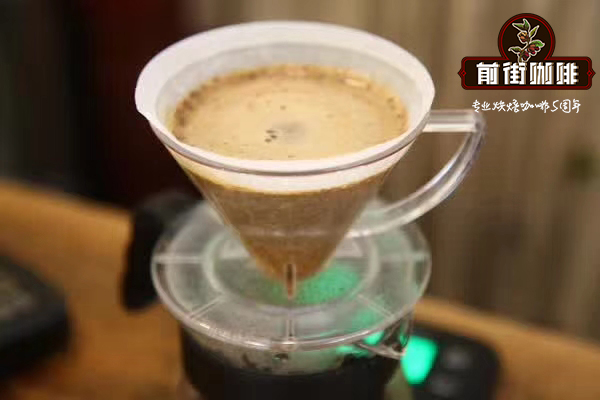Introduction to the History of Israeli Coffee is Israeli Coffee good? Israeli Coffee Development

Professional coffee knowledge exchange more coffee bean information please follow the coffee workshop (Wechat official account cafe_style)
In the 1940s and 1950s, Israel (a young country, now only 52 years old) had coffee shops selling soda (flavored and unflavored), and business was booming. This is what people can afford when they want to find a quiet place to sit down and chat with friends or discuss ideology (a good pastime among theorists and writers in this new immigrant society). Coffee is rare in this country because in difficult times of war, they must be rationed and must invest in the most basic things to absorb immigrants and post-World War II refugees.
Prepare coffee
Ironically, perhaps it was those hard years and military service requirements (including reserve service for all adult men over the age of 50 for a month or two a year) that laid the cornerstone of the coffee culture that is being struggled today. including espresso bars and open-air cafes across the country.
In a recently published book, the Coffee Table, about coffee itself, author Matam Shiram writes about the ritual of preparing coffee in the Israeli army:
Coffee is our only invention. Israeli institutions, indescribable... You have to imagine sand dunes and beating the sun (or vice versa), sweating uniforms, the taste in the fuel tank, especially the taste of finjan's brewed coffee.
Brew coffee over fire
Coffee is the best way to unite a group. Different people, even strangers, make coffee (it may be argued that coffee can only be made into a perfect mj when it is close to boiling point), sipping for a while, and the relationship between them is closer than that between brothers. Drinking coffee in the army... It can give people warm and sweet comfort. "
At the beginning of the ceremony, reservists reported from their homes a special toolbox containing portable camping stoves, sugar, coffee, small glasses and matches for patrols or barracks. When families go camping, this culture extends to civilian life. In the dead of night, if a family does not prepare Turkish coffee by a bonfire or by a mobile stove, their party is incomplete.
Campers enjoy coffee
In this experience, Israelis not only learned to appreciate the wine, but also learned to appreciate the joy hovering over the glass.
Observers say this is why Israelis' attitude towards drinking coffee is to sit down, relax and enjoy the company's attitude, unlike the popular "drink and run" attitude in other countries. This attitude is rooted in the Middle Eastern culture itself. Early Jewish pioneers saw the social importance of coffee consumption in the daily lives of Bedouin tribes and local Arabs.
Now, modern Israeli society has added other new inventions to the finjan and portable stoves: espresso machines can be found in cafes, workplaces and homes. But this revolution has only taken place in the past five years.
Stir coffee on a bonfire
Stir the coffee on the bonfire.
Nestle coffee was very popular in the sixties and seventies. The Hebrew word "nes" means miracle, and people think they have discovered it. Hot water and some dark powder. All right, a cup of coffee. It really can't compare with Turkish "botz coffee" or "earthy coffee", but it's cleaner, simpler and looks ordinary. The boom years ahead will bring freeze-drying, tasters' choices, and so on, because Israel always likes to catch up with its neighbors from the United States.
As Israelis began to travel, the influence of modern European culture became more common. Israel has become a place where Middle Eastern, European and international cuisine is on a par with McDonald's and Burger King.
These cosmopolitan (and yuppie) tendencies contradict the fundamental social experience of the Israeli army in drinking coffee, creating an atmosphere conducive to the general growth of cafes across the country.
END
Important Notice :
前街咖啡 FrontStreet Coffee has moved to new addredd:
FrontStreet Coffee Address: 315,Donghua East Road,GuangZhou
Tel:020 38364473
- Prev

How to make coffee in the press pot how to make coffee in the press pot
Professional coffee knowledge exchange more coffee bean information please follow Coffee Workshop (Wechat official account cafe_style) French Press: this may be one of the easiest ways to make coffee, you can get amazing results. Rule number one: first of all, you need to buy whole beans, not ground beans, unless they are ground and ready to be crushed in France. You
- Next

The correct use of Bonavita filter cup is the coffee made by Bonavita filter cup good?
Professional coffee knowledge exchange more information about coffee beans Please follow the coffee workshop (Wechat official account cafe_style) first of all, deposits. In order to reduce the coffee grounds, I got into the habit of not pouring all the coffee into the cup and never taking the last few sips. But occasionally I forget that the last sip of coffee is bitter. This is not a good way to finish your coffee. The first of the French media
Related
- Beginners will see the "Coffee pull flower" guide!
- What is the difference between ice blog purified milk and ordinary milk coffee?
- Why is the Philippines the largest producer of crops in Liberia?
- For coffee extraction, should the fine powder be retained?
- How does extracted espresso fill pressed powder? How much strength does it take to press the powder?
- How to make jasmine cold extract coffee? Is the jasmine + latte good?
- Will this little toy really make the coffee taste better? How does Lily Drip affect coffee extraction?
- Will the action of slapping the filter cup also affect coffee extraction?
- What's the difference between powder-to-water ratio and powder-to-liquid ratio?
- What is the Ethiopian local species? What does it have to do with Heirloom native species?

